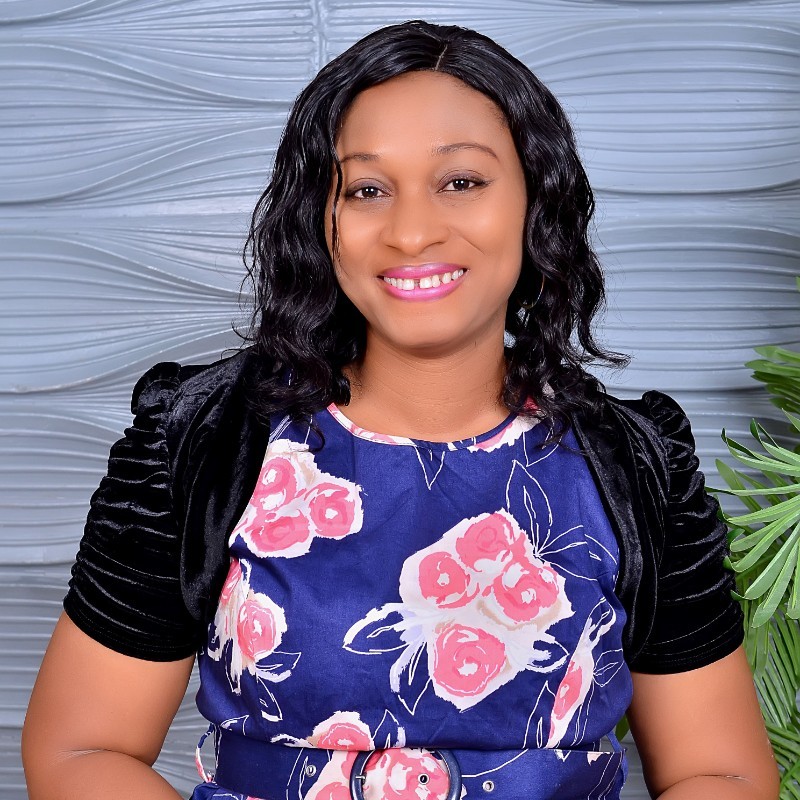
Hodo Orok, a PhD student in the Department of Atmospheric Sciences at the University of Illinois, Urbana-Champaign
Hodo Orok is a PhD Student and Graduate Research Assistant in the Department of Atmospheric Sciences, University of Illinois at Urbana-Champaign, IL. Within I-GUIDE Hodo contributes research to the Aging Dam Project and is a member of the I-GUIDE Climbers group and the Engagement and Partnership Team. Hodo was also a participant in the 2023 I-GUIDE Summer School hosted at the University Consortium for Atmospheric Research (UCAR) in Boulder, Colorado.
Did you start your academic career with the same goals and direction as you have now? If not, tell us a little about how and why your direction has changed?
My academic and career goals have changed since I started my undergraduate studies in Chemistry. During my final year in school, I realized I was getting more inclined towards the environmental sciences and its applications. That piqued my interest in pursuing a Masters in Environmental Assessment and Management. Professional work experience got me further interested in climate change and extreme weather-related topics. I was very interested in understanding the impacts of climate and weather risk on food, health, infrastructure, and society, so I decided to improve my knowledge of the physical processes by studying Atmospheric Sciences at the doctoral level.
What inspires you and motivates you to do the work that you do?
I am inspired by the ability to use my skills and educational experience to contribute to the science and communication of weather and climate risk-related events and impacts to improve knowledge, decision-making processes, and overall societal resilience.
Do you have a Plan B? What do you think you’d be doing if you hadn’t chosen an academic career?
Yes, I have a plan B. I am a Creative Scientific Writer who combines visual arts and animations to explain complex concepts around climate and weather risk. My first attempt was to author two books for elementary and middle school students on climate change, global warming, climate action, and environmental sustainability.
What is the next chapter in your career?
I am looking forward to the professional practice in my new field of Climate and Weather Risk Analysis and Assessment. I am also hoping to advance my passion for science communication focusing more on weather and climate risk communication.
What would you like to be when you grow up?
A Professor and a Consultant.
Tell us about your team and project during the 2023 I-GUIDE Summer School.
My team investigated the hydrological responses and shrinkage patterns of the Great Salt Lake. The primary objective of our work was to evaluate the performance of the National Water Model results (streamflow forecasts) and obtain insights on where the model could be improved to provide results that can help us study the impact of climate change on water supply forecasts within the Great Salt Lake basin, focusing on the Great Salt Lake’s level and area. We worked with different datasets such as precipitation data inputs and streamflow outputs from the model alongside observation data from USGS gauges to perform comparative analyses. We also used programming languages like Python and Javascript for our data analysis and were introduced to platforms like Hydroshare and the I-GUIDE platform. The week-long exercise was aimed at improving our computational, visualization and presentation skills. We also applied geoethics knowledge in conducting our research and most importantly, we incorporated reproducibility and reusability data principles by developing comprehensive Jupyter notebooks of our data analysis which are available on the I-GUIDE platform.
Tell us a bit about your experience with the 2023 Summer School? What part of the Summer School do you feel had the biggest impact on you or was the most useful/important for you?
The summer school was indeed an opportunity for collaboration with other colleagues from closely related fields of study across different institutions in the US. I really enjoyed the presentations, especially the one on Geovisualization, and the hands-on sessions were very useful. I also enjoyed the morning hike. My most impactful experience was working together with a very dedicated and resilient group of researchers with diverse skills and expertise to complete our project and make it reproducible on the I-GUIDE platform. This gave me the opportunity to learn something new from each member of the team.
What suggestions, guidance, or insight would you give for someone applying to or planning to attend a future Summer School?
My advice will be to grasp the opportunity to be part of the summer school next year and be prepared to contribute your skills or expertise to your team. Every problem set will definitely be an opportunity to learn new skills, new technology/software and collaborate with other colleagues in similar fields of interest. Finally, be prepared to make some new friends and have fun while learning, because I did.